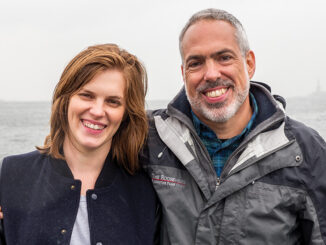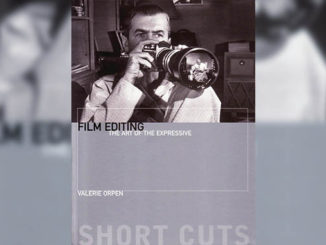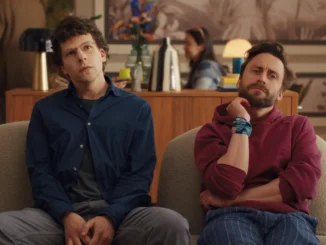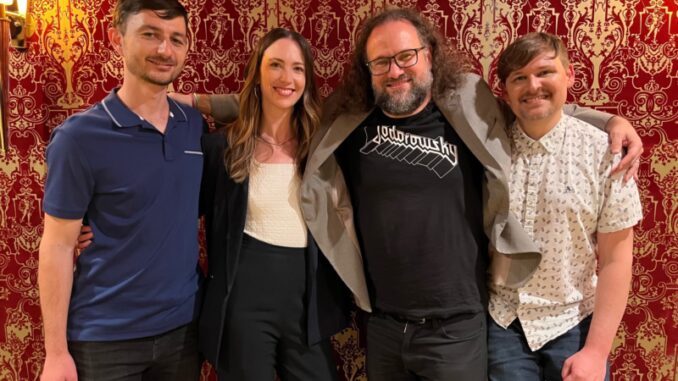
By Rob Feld
HBO’s series “Euphoria” offers an aesthetically eclectic experience as it tells the stories of high school students working their way through love, friendships, betrayals, sex, trauma, and social media.
The story tracks troubled 17-year-old Rue Bennett (Zendaya), who is fresh out of rehab with no intention of staying clean. One episode, such as “Stand Still Like the Hummingbird,” edited by Aaron I. Butler, ACE, and Julio Perez IV, ACE, can present a frenetic chase stitched together with handheld footage. Another installment, such as “The Theater and its Double,” edited by Perez, Laura Zempel, and Nikola Boyanov, may entail a meticulously composed, dreamlike theatrical production that weaves in and out of an uncertain reality. The series has a singular voice, though one may not know what to expect from it stylistically, episode to episode.
Sam Levinson adapted “Euphoria” from the eponymous Israeli series. Levinson writes and directs nearly every episode, making for a singular creative voice that needs to be translated to the editing team from an extraordinarily busy showrunner. Consequently, Perez, who cut the pilot, is positioned as Supervising Editor to orchestrate the grand vision between Levinson and his team, with each editor assigned episodes to shepherd. But with the episodes shot in blocks of four, the strategy can become “divide and conquer” when a team member as empty hands. The result is a unique collaboration, especially considering the stylistic eclecticism of the series and the plethora of skills and references it demands of its editing team.
CineMontage: The difference in style between each episode is impressive. How are you structured to maintain a cohesive voice through your collaborations?
Julio C. Perez: The unified voice starts with Sam. I take it upon myself to try to communicate as clearly as possible my ideas and hopes for what we can do editorially. We’re very open with one another. As we talk it out, each of us has our particular talents. I think the team has broad skillsets and is very good at translating ideas. Every episode has its own personality, which was Sam’s intention, yet each maintains the spirit of the overall show, as well.
CineMontage: Can you define that overall style and how you found it? How is it communicated?
Julio C. Perez: I’d say that we established it on the pilot, refined it through season one, and then evolved it to an even greater height in season two. It’s about bringing to it love for certain kinds of visual arts and music, and then the application of your own experiences and skillset. For both Sam and me, independent filmmaking had a lot to do with trying to evolve a language between creative collaborators that turns into a visual language of editing. I don’t mean to mystify it, but everything is dialogue. Through dialogue with the director/writer/showrunner, you negotiate and find that you have created certain rules for the show, certain principles that are both spoken and unspoken.
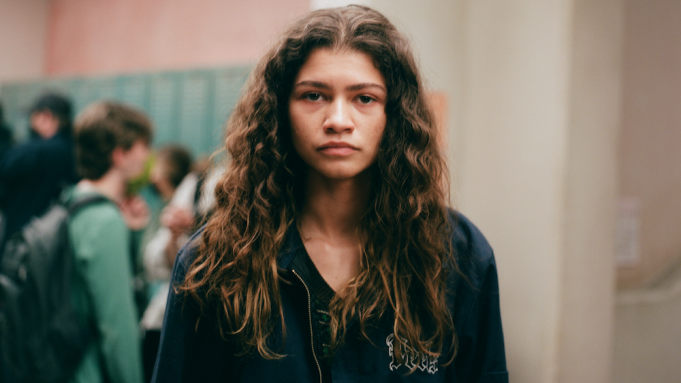
Aaron I. Butler: The human element of editing was so clear to me when I joined “Euphoria.” Every day the whole post team gets together for lunch. We talk about the movies we’re watching, the music we’re listening to, and a lot about our lives and our stories from our past. It created this incredible familial feeling that rolls into the editing with a safe space for us to be creative and give each other honest feedback, experiment, and play.
Laura Zempel: Our first screenings are internally with all of the editors to talk about each other’s episodes and how they fit within the season. We specifically carve out time to do that to help the whole season feel cohesive.
Nik Boyanov: As Julio mentioned, some of the style is unspoken and you pick up on it just by watching dailies. Sam and Marcel [Rév] are very intentional in the way they cover and shoot scenes. Along with each editor overseeing and shepherding individual episodes, Julio as the supervising editor is the shepherd for the whole season. As scenes and episodes are reaching various stages of cuts, he will give us feedback so that we maintain a unified vision and style, even with such unique episodes as we have in Season 2.
Aaron I. Butler: Sam will start with it as-scripted. Then you’ll see him start to experiment with different setups, play with dialogue or do a little improv. One of the important things that we do is track the evolution of the scene in the dailies. Frequently, they make all these discoveries on set and then we need to track and translate them. They tried this, ended up with that, but evolved this and landed here. Then it’s our job to piece that all together and come up with the best possible version from all their experiments, while getting into Sam’s head and ultimate vision.
CineMontage: Let’s talk about two episodes that are quite different from each other. First, “Stand Still Like a Hummingbird” is a frenetic chase, start to finish. There are huge emotional swings to track while building momentum. What kind of footage did you get and how was the episode envisioned?
Aaron I. Butler: I shepherded that one, with Julio as supervising editor. The first 15-minute stretch—the intervention in the house, the car scene, jumping out of the car—was scripted. But the very first cut was about 28 minutes long, so yes, we are given a lot of footage and a lot of options. There was a lot of crafting and experimentation with the style of it. Sam wanted the episode to have an energy and emotional rawness—not having the perfect camera move at all times. The most important thing was the emotion, not the dialogue. The episode came alive when we discovered that emotion and got inside Rue’s head and experience. She’s going through withdrawal, having a breakdown, every aspect of her life is falling apart, and there’s all this pressure.
CineMontage: “The Theater and its Double” is a dreamlike episode, incorporating Lexi’s high school play and her impressions of her memories of the events within. Figuring out how to balance realities must have taken some trial and error.
Julio C. Perez: That episode was especially deft in the interweaving of memory and what we would consider a current experience and reverie. Sam said he was interested not only in peeling off to Lexi’s perspective, separate from Rue’s, but also in Lexi’s impression of herself. We don’t tell the audience which elements are an actual representation of Lexi’s play versus what Lexi pictures in her own head as an ideal of the play, or of life.
CineMontage: I imagine that episode involved a great deal of storyboarding.
Julio C. Perez: Absolutely, yes. That’s the brilliance of what Sam does. He can be extremely specific each step of the way, and he may or may not throw it away. When you had a stitch a specific optical effect with the camera, that was deeply designed. But I’d say the episode actually has quite a bit of editorial innovation from the script.
Laura Zempel: I think that episode is one where we all combined our talents to get it in shape. We did a divide and conquer where Nik took the Custer storyline and cut it as one long, linear sequence—which is how they shot it. Then I started at the top with Lexi’s play and the intro, and we found ways of interweaving them together. Episodes 7 and 8 were written almost as one big episode, so we knew where we started and where to end, and the best point to break it off. Then we did a lot of experimentation and screened those episodes back-to-back to pace them out more delicately, to make two very strong cohesive episodes. We wanted to heighten Lexi’s anticipation of how her friends were going to react to her play. But it’s not only Lexi’s perception. It’s everyone else watching Lexi’s perception and reacting to it. So, in order to get inside her head, we took a leftover phone call between Fezco and Lexi from a prior episode that didn’t fit, and broke it up throughout episodes 7 and 8. That way we got Lexi’s head while tying it in to her budding relationship with Fezco. We found that built the tension around whether Fezco was going to show up to Lexi’s play. It turned into a wonderful discovery that ended up elevating those episodes.
Nik Boyanov: One thing that distinguishes this episode is that it is narrated by Lexi, which allowed us to get to some of her inner monologue. Up to now, Rue narrated all of the episodes and she has been known to be a bit of an unreliable narrator. Having Lexi take over in this episode gave us a new perspective by reliving her past memories through the play. For us, finding where to cut from the play to the flashbacks was about creating the most emotional weight for each moment. We had our core characters in the audience watching along, so showing the way they are reacting to what is happening on stage was key to landing some of these beats. And in the case of Fezco, showing Lexi see his empty seat in the audience brought on a sense of dread for the audience because we show them what is happening at Fezco’s house with Custer, but Lexi has no idea. I think the intercutting made that sequence truly heartbreaking to watch unfold.
CineMontage: It sounds like there’s a good deal, but what have you found unique about working on this series?
Julio C. Perez: Being able to apply elements of working on documentaries, on broadcast reality shows, and almost everything I worked on from workflow, systemic team interaction, and creative standpoints. Almost all of it seems to have fed into this show. It asks every little bit of each of our experiences. It takes the broadness of our skillsets that need to be broadened even further in order to accomplish what we do on the show. I love its ambition and that it asks for our collective experience to be brought to the table nearly every day. That “Euphoria” contains all genres is an absolute delight for me as an editor. You might be cutting one scene that’s an action thriller, then your next is a soapy drama or a delicate coming-of-age teen movie.
Aaron I. Butler: Editors are given a respect and freedom but held to these insane standards of creativity, always pushing the limit. Julio and Sam have created this editorial department where we feel so protected from outside factors. But the way the editors are elevated has been rare in my experience, and that was something incredibly unique about this show.



